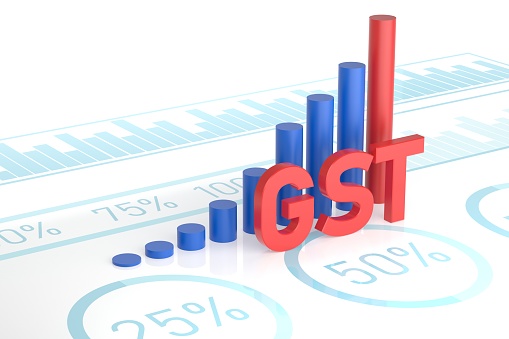GST jurisdictions refer to the different levels of government that are responsible for administering and collecting the Goods and Services Tax (GST) in India. The GST system is administered by the GST Council, which is a constitutional body that consists of the Union Finance Minister and the Finance Ministers of all the states and union territories of India.
Under the GST system, there are three types of GST jurisdictions:
- Central GST (CGST): This is levied by the central government on the intra-state supply of goods and services.
- State GST (SGST): This is levied by the state governments on the intra-state supply of goods and services.
- Integrated GST (IGST): This is levied by the central government on the inter-state supply of goods and services.
These three jurisdictions are responsible for the administration and collection of GST within their respective areas of jurisdiction. The revenue collected under each jurisdiction is used for different purposes, with some shared between the central and state governments and some retained by the state governments.

The GST state code is a two-digit code assigned to each state and union territory in India. It is a part of the GSTIN (Goods and Services Tax Identification Number), which is a unique identification number assigned to every registered taxpayer under the GST regime.
The first two digits of the GSTIN represent the state code, followed by a 10-digit PAN (Permanent Account Number) number, a 5-digit alphanumeric code for the business entity, and a single-digit check sum code.
Where is the State Code of GST needed?
- GST registration
- GST invoice and e-Invoicing
- GSTR-1 and GSTR-3B return reporting
Here is a list of the two-digit GST state codes for each state and union territory in India:
| STATE NAME | STATE CODE |
| JAMMU AND KASHMIR | 01 |
| HIMACHAL PRADESH | 02 |
| PUNJAB | 03 |
| CHANDIGARH | 04 |
| UTTARAKHAND | 05 |
| HARYANA | 06 |
| DELHI | 07 |
| RAJASTHAN | 08 |
| UTTAR PRADESH | 09 |
| BIHAR | 10 |
| SIKKIM | 11 |
| ARUNACHAL PRADESH | 12 |
| NAGALAND | 13 |
| MANIPUR | 14 |
| MIZORAM | 15 |
| TRIPURA | 16 |
| MEGHALAYA | 17 |
| ASSAM | 18 |
| WEST BENGAL | 19 |
| JHARKHAND | 20 |
| ODISHA | 21 |
| CHATTISGARH | 22 |
| MADHYA PRADESH | 23 |
| GUJARAT | 24 |
| DADRA AND NAGAR HAVELI AND DAMAN AND DIU (NEWLY MERGED UT) | 26* |
| MAHARASHTRA | 27 |
| ANDHRA PRADESH(BEFORE DIVISION) | 28 |
| KARNATAKA | 29 |
| GOA | 30 |
| LAKSHADWEEP | 31 |
| KERALA | 32 |
| TAMIL NADU | 33 |
| PUDUCHERRY | 34 |
| ANDAMAN AND NICOBAR ISLANDS | 35 |
| TELANGANA | 36 |
| ANDHRA PRADESH (NEWLY ADDED) | 37 |
| LADAKH (NEWLY ADDED) | 38 |
| OTHER TERRITORY | 97 |
| CENTRE JURISDICTION | 99 |
Here are some frequently asked questions (FAQs) on GST jurisdictions:
Q. How are GST jurisdictions determined?
Answer: GST jurisdictions are determined based on the geographical boundaries of the states and union territories in India.
Q. What is the role of the GST Council in determining the jurisdiction of GST authorities?
Answer: The GST Council is responsible for determining the jurisdiction of GST authorities and for making recommendations on any changes to the existing jurisdictional boundaries.
Q. Can a taxpayer have more than one GST jurisdiction?
Answer: No, a taxpayer can have only one GST jurisdiction based on the principal place of business or the location of the head office.
Q. Can a taxpayer transfer their GST jurisdiction?
Answer: No, a taxpayer cannot transfer their GST jurisdiction. However, if the taxpayer’s principal place of business or head office is changed to a new location, the GST jurisdiction will also change accordingly.
Q. Can a taxpayer file their GST returns in a jurisdiction other than their own?
Answer: No, a taxpayer must file their GST returns in the jurisdiction in which they are registered.
Q. How can taxpayers contact their GST jurisdictional authorities?
Answer: Taxpayers can contact their GST jurisdictional authorities through the GST portal, by phone or email, or by visiting the local GST office.






